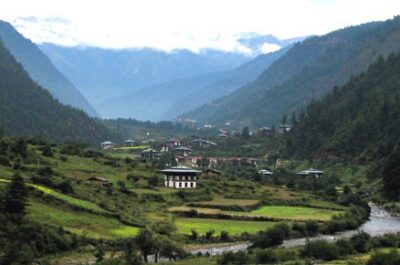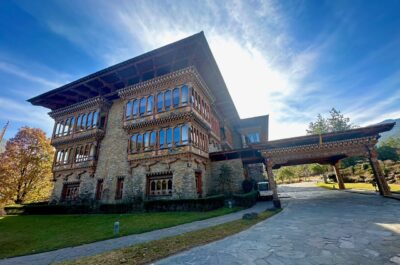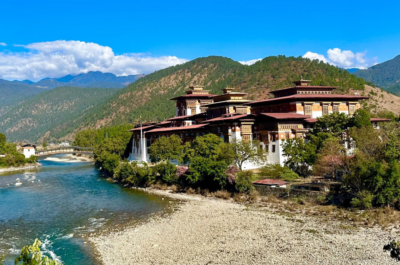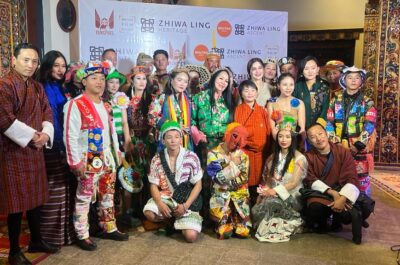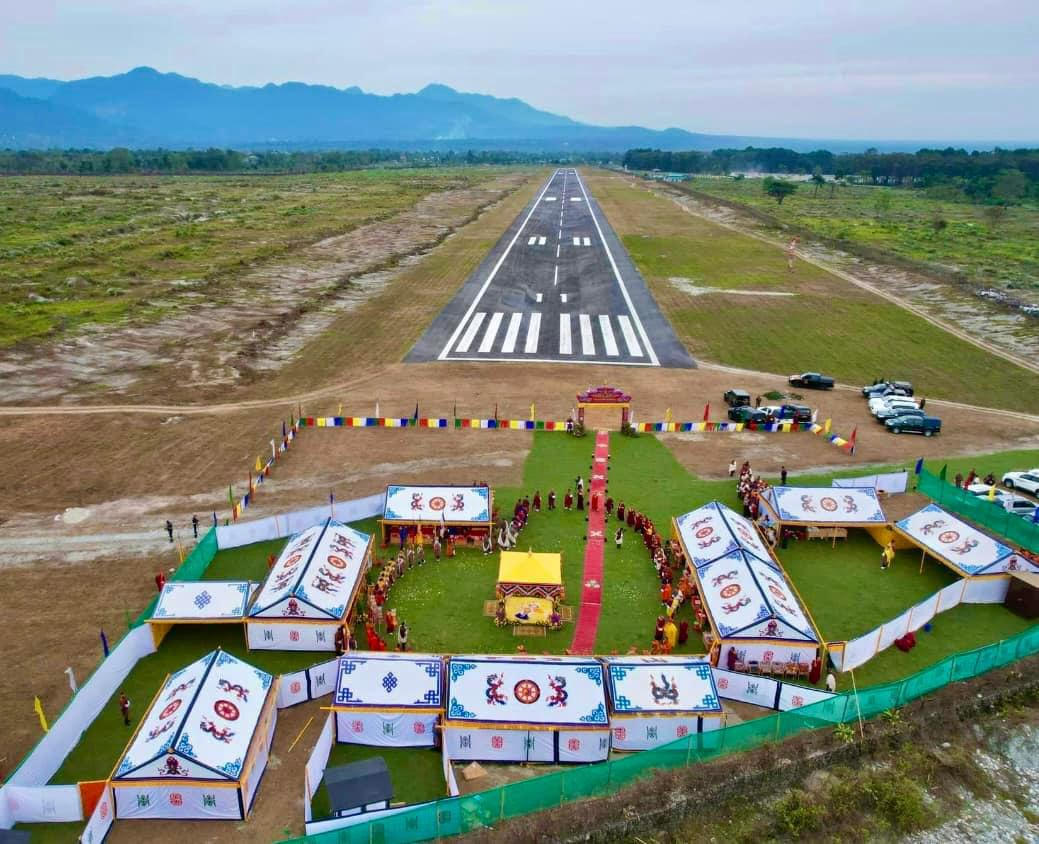
Bhutan’s Gelephu, poised as the Mindfulness City, embodies His Majesty’s vision, blending Gross National Happiness principles with economic growth, and fostering a harmonious balance between nature, culture, and innovation.
Thimphu, Bhutan: During the recent National Day celebrations held on the 17th of December 2023 I witnessed the King’s speech to the nation. Knowing he had much to say, in an extraordinary show of kindness and compassion he asked all the armed forces and military marching band members, standing at “attention” in front of their King, to sit down.
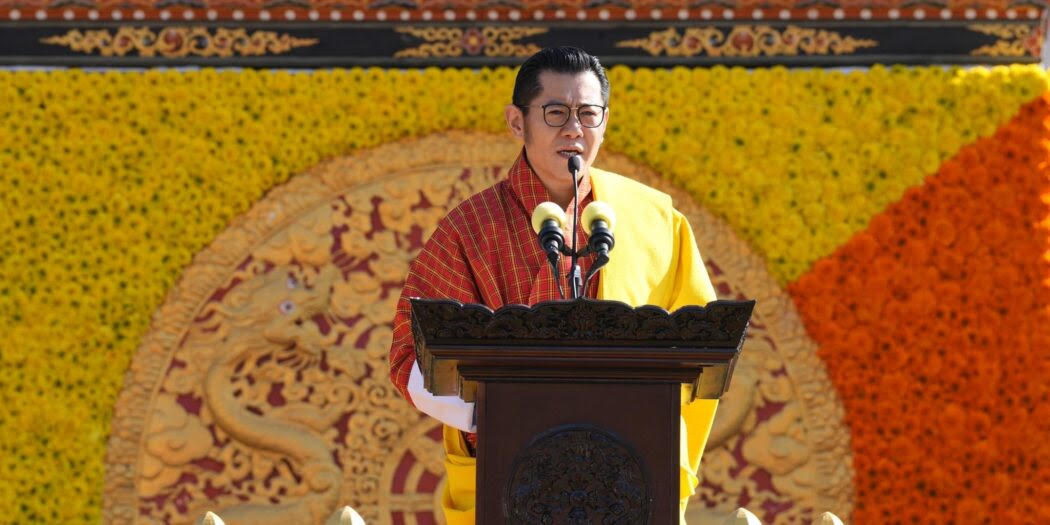
His Majesty The King’s 116th National Day Address focused primarily on announcing the Gelephu Special Administrative Region called the Gelephu Mindfulness City
Gelephu city is being designed the Mindfulness City, aligning with His Majesty King Jigme Khesar Namgyel Wangchuck’s vision for a new economic hub in Bhutan. Spanning over 1000 km2, the masterplan integrates Bhutanese culture, the Gross National Happiness index (GNH) principles, and the country’s spiritual heritage. Situated in Southern Bhutan, near the India-Bhutan border, Gelephu Special Administration Region is envisioned to leverage its location to foster economic growth and provide opportunities for the local population.
With Bhutan’s lush landscapes in mind, the Mindfulness City plans to enhance natural wealth by creating an interconnected network of ecosystems and vibrant neighborhoods. The plan will incorporate green technology, education, and infrastructure, such as an international airport, railway connections, a hydroelectric dam, and public spaces. It also embraces local building typologies based on the nine domains of National Happiness reflecting aspects like well-being, health, education, and fostering cultural hubs and civic facilities.
Surrounded by mountains, forests, and rivers, Bhutan is home to rich biodiversity, with 70% of its land covered in forest. The Mindfulness City aims to enhance this natural wealth by creating an interconnected network of ecosystems and vibrant neighborhoods. Inspired by the flow of 35 rivers and streams across the site, the city’s design features ribbonlike neighborhoods resembling paddy fields, forming terraces cascading from hills to valleys. The city’s density gradually increases from rural highlands to urban lowlands, fostering a seamless transition between different living environments.
Renowned designer Bjarke Ingels describes the Gelephu Masterplan as giving shape to the King’s vision.
“The Gelephu Masterplan gives form to His Majesty’s vision to create a city that becomes a cradle for growth and innovation while remaining founded on Bhutanese nature and culture. We imagine the Mindfulness City as a place that could be nowhere else,” he said.
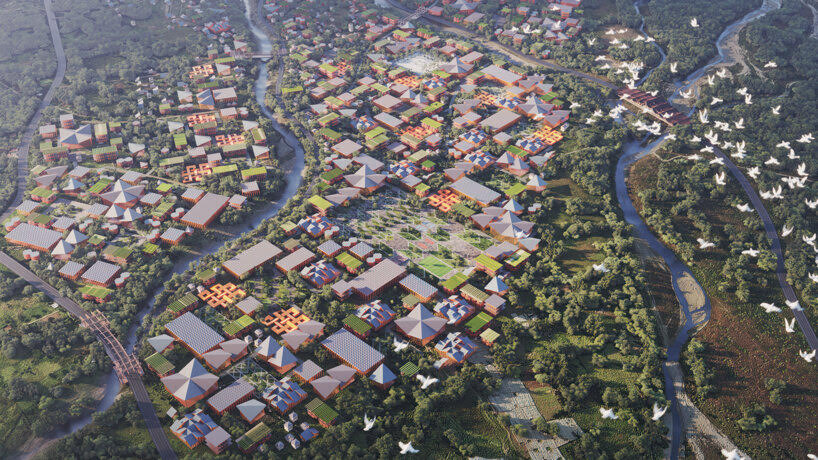
Plans for Gelephu connecting people and nature.
“Shaped by waterways, Gelephu becomes a land of bridges, connecting nature and people, past and future, local and global. Like the traditional Dzongs, these inhabitable bridges turn into cultural landmarks, doubling as transportation infrastructure combined with civic facilities,” said Ingels.
Andrew J Wood was born in Yorkshire England, he is a former hotelier, Skalleague and travel writer. Andrew has 48 years of hospitality and travel experience. Educated at Batley Grammar School and a hotel graduate of Napier University, Edinburgh. Andrew started his career in London, working with various hotels. His first posting overseas was with Hilton International, in Paris, and he later arrived in Asia in 1991 on Bangkok with his appointment as Director of Marketing at the Shangri-La Hotel and has remained in Thailand ever since. Andrew has also worked with the Royal Garden Resort Group now Anantara (Vice President) and the Landmark Group of Hotels (Vice President of Sales and Marketing). Latterly he has been the General Manager at the Royal Cliff Group of Hotels in Pattaya and the Chaophya Park Hotel Bangkok & Resorts.
A past board member and Director of Skål International (SI), a former National President with SI Thailand and a two time past President of the Bangkok Club. Andrew is the former President of Skål Asia. In 2019, Andrew was awarded SKÅL’s highest award the distinction of Membre D’Honneur.
He is a regular guest lecturer at various Universities in Asia.




![[PR] PR_Ascott and Vimut Hospital_2024](https://www.traveldailynews.asia/wp-content/uploads/2024/04/PR-PR_Ascott-and-Vimut-Hospital_2024-400x265.jpg)









